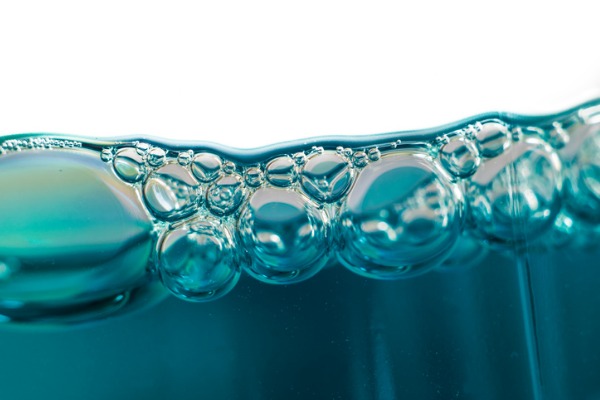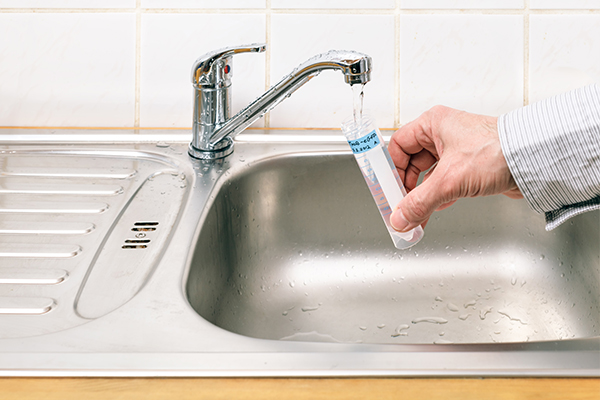There are several ways to test for hard water in your home if you suspect it might be the cause of your spotty dishes, scaly pipes, scummy tubs, or itchy skin.
Methods for Testing Water Hardness
Dish Soap Test
Get a clear, clean, empty bottle with a cap. Fill the bottle one-third full of water and add a few drops of pure liquid dish soap. Put the cap on the bottle and shake the bottle vigorously. Did fluffy bubbles form on top of the water, or is the water just cloudy? If it’s the latter, you have some level of hard water in your home. Unfortunately, this method can’t tell you that level though.
DIY Water Hardness Test Kits
There are various types of water testing kits available at your local hardware store like water hardness test strips. Dip the test strip into a sample of your water, and its color will change according to the hardness of your water. A color chart on the packaging tells you what each color means. You'll also want to look at the grains per gallon of water to determine the level of hardness. This can be calculated by dividing the mg/l by 17.1. Both results are used regularly to determine how to treat the water.
There are also products that test your water digitally or in-depth tests that involve sending samples to labs for testing.
Call the Water Company
If you are on public water, you can call the water utility and ask for the water quality report for your area. While the report won’t be specific to your home, it will give you an idea about water quality in your area. Look for calcium carbonate on the report and see how many milligrams per liter (mg/L) is in your water. The higher the number, the harder your water. Here’s the scale used by the U.S. Geological Survey:
- 0-60 mg/L – Soft
- 61-120 mg/L – Moderately hard
- 121-180 mg/L – Hard
- 181 mg/L and up – Very hard
Use an Independent Laboratory
An independent water testing laboratory can give you a detailed report on your water quality. If you have a well or private water source, you are responsible for assuring your water is safe, and the EPA recommends routine water testing.
Leave It for the Pros
Your Indy Water Pros at Advantage Water Conditioning also provide on-site water analysis for hardness, iron, and sulfur at no charge. We may recommend the county board of health conduct an in-depth water analysis for more problematic water. Talk to us today to learn more.







